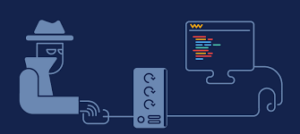Image may be NSFW.
Clik here to view.
To address a growing international issue, governments in the region can enhance the initiatives of non-governmental organisations focused on identifying, rescuing, and repatriating individuals who fall victim to increasingly sophisticated overseas job scams operated by cybercriminal groups.
Image may be NSFW.
Clik here to view.
The issue of human trafficking, particularly involving individuals coerced into working at scam call centres run by these criminal syndicates, requires urgent regional intervention. A report from the Office of the United Nations High Commissioner for Human Rights in 2023 highlighted that around 220,000 individuals, many originating from Southeast Asia, have been trafficked into scam operations in countries such as Cambodia, Myanmar, and the Philippines. Southeast Asian governments must take further action to safeguard their citizens from such exploitation while also enhancing support for victims through proactive rescue efforts and comprehensive post-rescue assistance.
The individuals affected by these scams come from diverse socio-economic backgrounds. Those with university degrees and computer skills are pmainlytargeted due to their perceived proficiency in digital environments, making them more susceptible to manipulation into participating in online fraud schemes. One prevalent example is the “pig-butchering scam,” which occurs on social media platforms like Facebook and WhatsApp. In this scheme, scammers cultivate long-term relationships with potential victims, eventually deceiving them into losing money through fraudulent investment opportunities or loans. In recent years, a number of international and regional efforts led by non-governmental organisations (NGOs) and governmental bodies have achieved remarkable successes in rescuing victims of human trafficking. Among these initiatives, the International Justice Mission (IJM) and various NGOs have played a pivotal role in aiding over 350 individuals, utilising strategies that involve exerting pressure on law enforcement and negotiating with organised crime groups.
Meanwhile, the Global Anti-Scam Organisation (GASO) has made significant strides as well, managing to liberate more than 500 victims since July 2021 through its connections with local political figures. The United Nations’ International Organisation for Migration (IOM) has also been instrumental in providing essential support for repatriation efforts, including food, shelter, and translation services, to victims identified by local authorities and embassies. Furthermore, local law enforcement operations have yielded substantial results; a notable example is a police raid in Bamban, Philippines, in March 2024, which resulted in the rescue of over 800 individuals from dire circumstances.
Image may be NSFW.
Clik here to view.
Occasionally, some victims manage to escape their captors on their own. Take Bilce Tan, for instance—this Malaysian man found himself trafficked to Cambodia but managed to bribe an insider within his confinement to facilitate his escape. Similarly, “Sara,” a Thai woman caught in a comparable plight in Myanmar, managed to secure her freedom by paying a ransom made up of her earnings from scams, alongside loans and personal savings. In a daring act of bravery in 2022, around 42 Vietnamese individuals held captive in a scam call centre disguised within a Cambodian casino swam across the Binh Di River to reach Vietnam. While one of them was recaptured and another went missing during their perilous journey, the majority ultimately found safety on the other side.
Image may be NSFW.
Clik here to view.
Nonetheless, despite these glimmers of hope, a staggering number of victims continue to languish in captivity. A 2024 report from the IOM paints a grim picture: the instances of human trafficking for forced criminal activities in Southeast Asia surged from 296 cases in 2022 to an alarming 978 in 2023—a staggering increase of 230 per cent. This data suggests that countless individuals remain trapped, with little chance of liberation if we consider the current trends. The situation is further complicated by the fact that those who have been rescued often carry the heavy burdens of trauma, guilt, social stigma, and even potential legal repercussions in their home countries for crimes they were coerced into committing.
To effectively tackle the pervasive issue of human trafficking for forced criminality associated with overseas scam operations, it is clear that a multifaceted strategy is necessary. This approach should encompass prevention measures, proactive rescue missions, and comprehensive support systems for those who have survived such harrowing experiences. Only through coordinated efforts can we hope to dismantle this insidious network and provide a lifeline to those still ensnared in its grasp. Solicitations. Victims are often enticed by false promises of lucrative job offers in seemingly legitimate sectors, such as casinos or roles involving sales and data entry.
Upon reaching the scam centres, victims have their passports confiscated and are held in heavily secured facilities. They undergo rigorous training on how to execute online scams. They are required to fulfil daily performance targets, which include creating fake profiles and researching potential scam victims to tailor practical fraudulent approaches. These individuals are compelled to work up to 14 hours each day under constant surveillance to prevent escapes or requests for help. Failure to achieve the set quotas can lead to severe consequences, including violence and deprivation of food and sleep.
Image may be NSFW.
Clik here to view.
In the heart of Southeast Asia, a silent crisis unfolds—a web of human trafficking that ensnares countless individuals, pulling them into the dark underbelly of forced criminality within overseas scam operations. The journey from victimhood to recovery is fraught with challenges, but there exists a glimmer of hope through the collaboration between governments and non-governmental organisations (NGOs).
Imagine a scenario where governments harness their resources not just to combat this issue but to enhance the initiatives already championed by NGOs. Picture a world where repatriated victims are greeted not only with relief but also with a robust support system designed to nurture their healing. This involves allocating funds to provide essential counselling services aimed at helping these individuals recover from the deep-seated trauma they have endured. As they navigate the difficult path of reintegration, job search programs could be established to guide them in reclaiming their lives and finding stable employment in their home countries.
Moreover, envision a legal landscape that recognises the plight of these victims. Instead of being treated as criminals, they would be acknowledged as coerced participants and vital witnesses in the fight against trafficking. By implementing legal protections that affirm their rights, governments can reshape the narrative surrounding these individuals, allowing them to rebuild their lives with dignity rather than shame.
Image may be NSFW.
Clik here to view.
However, addressing human trafficking, mainly when it comes to forced criminality in far-off lands, requires more than just compassion and understanding—it demands a multifaceted strategy. This strategy must weave together prevention efforts, proactive rescues, and comprehensive support systems for those rescued. Southeast Asian governments must step up and take a more active role in safeguarding their citizens from falling prey to such heinous situations abroad.
They must not only focus on preventing trafficking from occurring in the first place but also hone their skills in identifying those who are already trapped within this cycle. Once these victims are safely returned home, governments should facilitate their reintegration into society, ensuring they have access to the necessary resources and support networks that will enable them to heal and thrive.
Image may be NSFW.
Clik here to view.
In this evolving narrative, the partnership between government bodies and NGOs stands as a beacon of hope—a testament to what can be achieved when compassion meets action. Together, they can forge a new path for trafficking victims, allowing them to emerge from the shadows of despair and step into a future where they are valued, respected, and given the opportunity to reclaim their lives.
Secure browsing
When it comes to staying safe online, using a secure and private browser is crucial. Such a browser can help protect your personal information and keep you safe from cyber threats. One option that offers these features is the free Maxthon Browser. It comes with built-in adblock and anti-tracking software to enhance your browsing privacy.
Maxthon Browser is dedicated to providing a secure and private browsing experience for its users. With a strong focus on privacy and security, Maxthon employs strict measures to safeguard user data and online activities from potential threats. The browser utilises advanced encryption protocols to ensure that user information remains protected during internet sessions.
Maxthon private browser for online privacy
In addition, Maxthon implements features such as ad blockers, anti-tracking tools, and incognito mode to enhance its users’ privacy. By blocking unwanted ads and preventing tracking, the browser helps maintain a secure environment for online activities. Furthermore, incognito mode enables users to browse the web without leaving any trace of their history or activity on the device.
Image may be NSFW.
Clik here to view.
Maxthon’s commitment to prioritising its users’ privacy and security is exemplified through regular updates and security enhancements. These updates are designed to address emerging vulnerabilities and ensure that the browser maintains its reputation as a safe and reliable option for those seeking a private browsing experience. Overall, Maxthon Browser offers a comprehensive set of tools and features aimed at delivering a secure and private browsing experience.
Maxthon Browser, a free web browser, offers users a secure and private browsing experience with its built-in adblock and anti-tracking software. These features help protect users from intrusive ads and prevent websites from tracking their online activities. The browser’s adblock functionality blocks annoying pop-ups and banners, allowing for an uninterrupted browsing session. Additionally, the anti-tracking software safeguards user privacy by preventing websites from collecting personal data without consent.
By utilising Maxthon Browser, users can browse the internet confidently, knowing that their online activities are shielded from prying eyes. The integrated security features alleviate concerns about potential privacy breaches and ensure a safer browsing environment. Furthermore, the browser’s user-friendly interface makes it easy for individuals to customise their privacy settings according to their preferences.
Maxthon Browser delivers a seamless browsing experience and prioritises its users’ privacy and security through its efficient ad-blocking and anti-tracking capabilities. With these protective measures in place, users can enjoy the internet while feeling reassured about their online privacy.
In addition, the desktop version of Maxthon Browser works seamlessly with their VPN, providing an extra layer of security. By using this browser, you can minimise the risk of encountering online threats and enjoy a safer internet experience. With its combination of security features, Maxthon Browser aims to provide users with peace of mind while they browse.
Maxthon Browser stands out as a reliable choice for users who prioritise privacy and security. With its robust encryption measures and extensive privacy settings, it offers a secure browsing experience that gives users peace of mind. The browser’s commitment to protecting user data and preventing unauthorised access sets it apart in the competitive market of web browsers.
By choosing Maxthon Browser, users can feel confident that their online activities are safeguarded from potential threats and invasions of privacy. In an age where digital security is more important than ever, opting for a browser like Maxthon is a proactive step towards ensuring a safer online experience. Embrace the reassurance of secure browsing with Maxthon Browser today!
The post Uncovering The Hidden Struggles Of Victims In Southeast Asia appeared first on Maxthon | Privacy Private Browser.